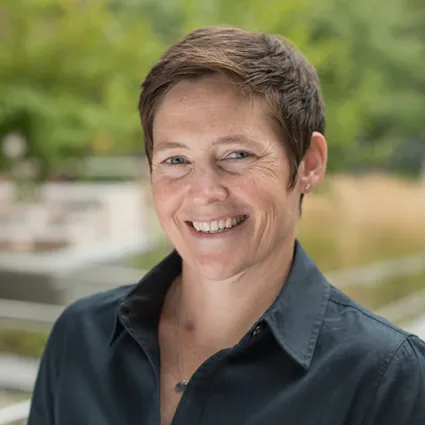Sarah Witkowski
Chair and Professor of Exercise & Sport Studies

Biography
Sarah Witkowski is an exercise physiologist whose research focuses on cardiovascular physiology. The overall goal of her research is to understand the cells and signals that promote blood vessel health, repair and regeneration. Recently, she has investigated female-specific conditions, such as menopause, that increase risk for cardiovascular disease and the role that physical activity and fitness play to alter the female risk trajectory.
Witkowski has a strong background in sports and coaching as she has coached all levels, from youth to division I intercollegiate sports. She has coached at numerous camps and clinics nationally and internationally, including instructional clinics for coaches. Prior to her doctoral training, Witkowski held a position at the Institute for Exercise and Environmental Medicine in Dallas that included performance testing of young and older athletes.
Selected Publications
Peer-Reviewed Journal Articles
Serviente C, Troy LM, de Jonge M, Shill DD, Jenkins NT, Witkowski S. “Endothelial and inflammatory responses to acute exercise in perimenopausal and late postmenopausal women.” Am J Physiol Regul Integr Comp Physiol. Nov 1;311, no. 5 (2016): R841-R850.
Witkowski S, Guhanarayan G, Burgess R. “Glucose and acute exercise influence factors secreted by circulating angiogenic cells in vitro.” Physiol Rep. Feb;4, no. 3 (2016): pii: e12649.
LaBarbera KE, Hyldahl RD, O'Fallon KS, Clarkson PM, Witkowski S. “Pericyte NF-κB activation enhances endothelial cell proliferation and proangiogenic cytokine secretion in vitro.” Physiol Rep. Apr;3, no.4 (2015): pii: e12309.
Guhanarayan G, Jablonski J, Witkowski S. “Circulating angiogenic cell population responses to 10 days of reduced physical activity.” J Appl Physiol (1985). Sep 1;117, no. 5 (2014):500-6. doi: 10.1152/japplphysiol.00087.2014.
Chapman RF, Karlsen T, Resaland GK, Ge RL, Harber MP, Witkowski S, Stray-Gundersen J, Levine BD. “Defining the "dose" of altitude training: how high to live for optimal sea level performance enhancement.” J Appl Physiol (1985). Mar 15;116, no.6 (2014):595-603.
Invited Commentary
Witkowski S, Serviente C. “Changing Sex Hormones Represent a Cardiovascular Disadvantage for Aging Women.” Exerc Sport Sci Rev. Apr;45, no. 2 (2017):57.
Book Chapter
“Exercise and Stem Cells,” in Molecular and Cellular Regulation of Adaptation to Exercise, with Boppart, MD and De Lisio M. Edited by Claude Bouchard. 1st edition. Vol 135. Progress in Molecular Biology and Translational Science. UK: Academic Press, 2015, pp 423-456. ISSN 1877-1173.
Office Hours
Vary by semester. Always by appointment.